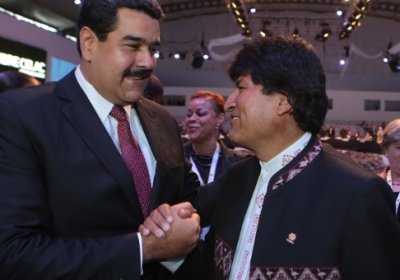The Brazilian football team El Cruzeiro wore T-shirts highlighting the many issues that women in the South American country still face on a daily basis. Meanwhile, a similar initiative was announced by the Costa Rican football league. On March 8, players did not celebrate goals scored as part of a campaign meant to express solidarity with women victims of violence.
Costa Rica
The US’s role in Latin America is facing a growing challenge. The 33 member states of the Community of Latin American and Caribbean States (CELAC) vehemently rejected North American intervention in the continent, and particularly the US-led blockade of Cuba and recent sanctions against Venezuela.
These positions were part of the “Belen Declaration”, approved during CELAC’s third annual presidential summit, held on January 28th and 29th in Belen, Costa Rica.
Venezuelan President Nicolas Maduro told a meeting of the Community of Latin American and Caribbean States (CELAC) in Costa Rica on January 28 that Latin America is living in a “new historic era” marked by unity and great opportunity.
CELAC was first launched in 2011 in Venezuela, uniting all countries in the Americas except for the United States and Candada. It was set up as a counter-point to the Organisation of American States, which traditionally been dominated by the US.
The election of Luis Guillermo Solis on April 6 as president of Costa Rica, with 77% of the votes, represents the end of a historical period and opens the door to unprecedented opportunities for the left.
Solis, representing the Citizens Action Party (PAC), crushed the remnants of the Party of National Liberation (PLN), a party that he once served as general secretary.
The International Criminal Court (ICC) was established in 2002 at The Hague in the Netherlands to prosecute individuals alleged to have committed war crimes, crimes against humanity and the crime of genocide.
From the ICC’s inception, the US objected to the possibility that its nationals could be subject to the court’s jurisdiction.
Alarm bells should be ringing as the threat of war looms on the horizon, Venezuelan President Hugo Chavez warned in his July 18 weekly column.
The warning came after tensions again flared with neighbouring Colombia, and the Central American nation of Costa Rica agreed to 6000 US troops being deployed on its soil.
Chavez placed Venezuela on high alert and broke diplomatic relations with Colombia after a July 22 meeting of the Organisation of American States (OAS).





